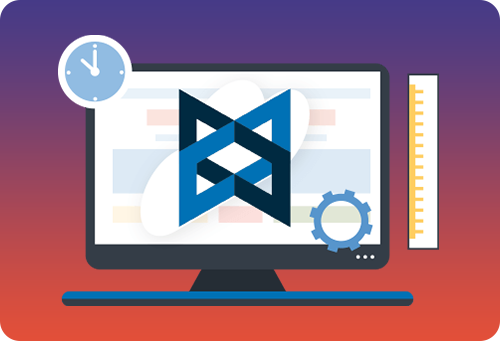Top 7 Reasons Why Backbone.js Is Perfect for Lightweight Web Projects
 Michael Johnson
Michael JohnsonIn today’s fast-moving web development world, choosing the right JavaScript framework is essential to build efficient, lightweight, and scalable web projects. While modern frameworks like React, Vue, and Angular dominate many enterprise applications, Backbone.js development still holds a powerful niche, especially for lightweight web projects.

Whether you’re building a minimum viable product (MVP), a fast-loading marketing site, or a simple interactive web tool, Backbone.js brings simplicity and flexibility to the table. Many experienced developers and even specialized Backbone.js development companies continue to choose this trusted framework for small to medium projects where heavy frameworks are often overkill.
In this blog, we’ll explore the Top 7 reasons why Backbone.js is perfect for lightweight web projects, and why it should still be part of your developer toolkit in 2025.
Minimal File Size and Footprint
Speed Matters for Lightweight Projects
Modern frameworks often come with significant overhead. Backbone.js is lean by design, with a minified file size of only around 6KB (gzipped). This minimal footprint means:
Faster loading times on both desktop and mobile devices
Ideal for performance-driven websites
Less dependency bloat
When your primary goal is delivering a web development project that loads in the blink of an eye, minimal file size directly contributes to that success. Especially in regions with slow internet connectivity, choosing Backbone.js helps businesses reach users faster.
Easy to Learn and Use
Perfect for Quick Prototyping
Unlike more complex frameworks that require deep knowledge of concepts like Virtual DOM, JSX, or reactive systems, Backbone’s learning curve is low. It’s:
Straightforward to pick up if you know JavaScript
Ideal for teams that need to deliver quick prototypes
Easy to onboard new developers
If your Backbone.js development company is tasked with quickly prototyping or producing a product demo, Backbone allows developers to move fast without the need for long ramp-up times.
Provides Just Enough Structure
Flexible Architecture without Complexity
Many developers complain that modern frameworks impose too much structure. Backbone gives you:
Models for data
Views for UI
Collections for groups of models
Routers for navigation
It doesn’t force you into rigid conventions, giving developers flexibility to build the way they want. You can structure your application how it makes sense for you and scale up when necessary.
For lightweight app development, where custom solutions often trump generic architecture, this flexibility is a huge win.
Perfect for Integrating with Existing Code
Ideal for Gradual Upgrades of Legacy Systems
Have an existing project and need to add interactivity without refactoring everything? Backbone.js fits in easily with:
Legacy codebases
Static HTML sites
jQuery-based projects
This makes Backbone the go-to option for businesses modernizing their platforms one piece at a time. Instead of rewriting your app with a heavyweight framework, you can enhance your existing site incrementally using Backbone.
That’s why it’s still popular with web agencies and Backbone.js development companies handling modernization projects.
Works Seamlessly with REST APIs
Optimized for API-Driven Development
Backbone’s Models and Collections are designed to sync easily with RESTful APIs right out of the box. No extra configuration, no learning proprietary state management systems — just clean, predictable communication with your server.
In projects focused on:
Web development with API-first architectures
App development for lightweight admin panels or dashboards
Even AI development dashboards with simple API data visualizations
Backbone.js keeps data handling lean and efficient. For startups or small teams building Minimum Viable Products (MVPs), this direct REST integration removes unnecessary complexity and accelerates development cycles.
Huge Ecosystem of Supporting Libraries
Extending Functionality with Trusted Tools
While Backbone is minimal by design, it has a robust ecosystem of plugins and extensions to support common project needs:
Marionette.js for better application architecture
Backbone.LocalStorage for offline data persistence
Handlebars.js or Mustache.js for templating
Underscore.js or Lodash for data manipulation
These libraries give you the flexibility to only use what’s needed, keeping your project light but functional.
If you want a lightweight app development stack that can grow with your project’s needs, this ecosystem makes Backbone an extremely adaptable solution.
Reliable and Battle-Tested
Stability You Can Count On
Unlike newer JavaScript libraries that may still evolve drastically, Backbone has proven itself for over a decade. It powers numerous large projects, some of which still run in major corporations.
Why does this matter for lightweight projects?
It’s stable, with well-documented patterns
The bugs have been found and fixed long ago
It integrates well with modern web development workflows (using tools like Webpack or Vite)
With so much experience behind it, Backbone allows developers to build with confidence. By hiring a specialized Backbone.js development company, you gain the advantage of seasoned developers who know how to squeeze performance and reliability out of this mature framework.
When to Choose Backbone.js for Your Project
Backbone.js may not be the flashiest framework in the JavaScript world, but when it comes to lightweight web projects, few tools can match its combination of simplicity, power, and proven performance.
Ideal project types include:
MVPs for startup founders
Internal business tools
Single-purpose landing pages with interactive elements
Low-maintenance web development tasks requiring fast delivery
Prototyping tools for future app development
Conclusion: Backbone.js Is Still a Smart Choice for Lightweight Projects
In an era dominated by flashy frameworks and complex ecosystems, Backbone.js development stands tall for those who want simplicity, performance, and flexibility. Whether you’re launching a startup MVP, building an interactive landing page, or developing internal tools, Backbone gives you all the essential tools and nothing you don’t need.
And if you’re planning your next lightweight web project, consider partnering with a Backbone.js development company. Their expertise ensures your project is not only fast but also scalable, maintainable, and future-ready.
Subscribe to my newsletter
Read articles from Michael Johnson directly inside your inbox. Subscribe to the newsletter, and don't miss out.
Written by
